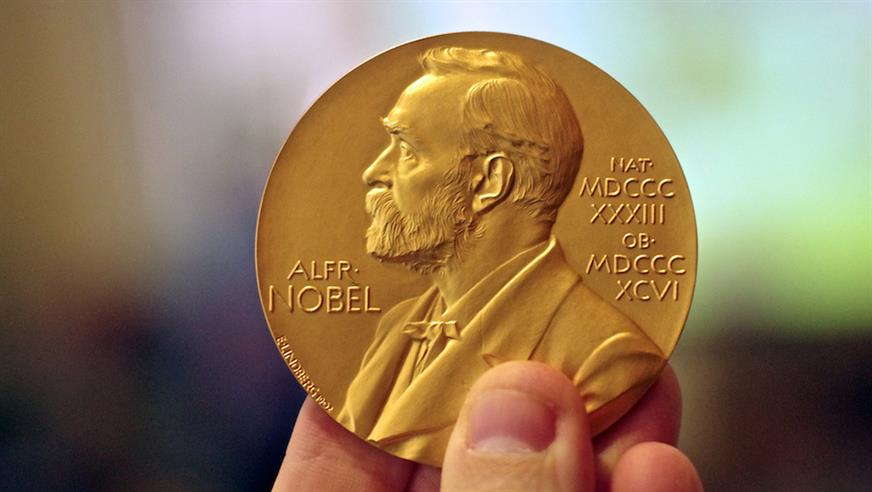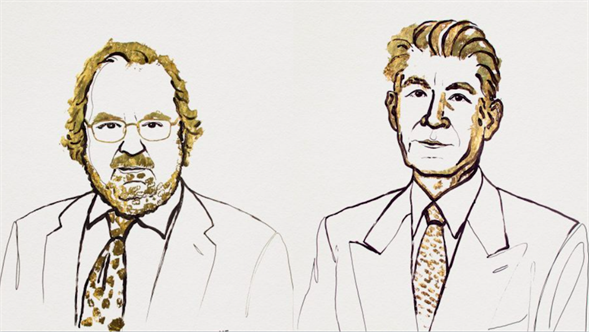
Nobel Prize medal. Photo by Adam Baker via Flickr. Licensed under a Creative Commons CC BY 2.0 license.
There are a few words that we science writers are often accused of overusing when talking about progress in medical research – ‘ground-breaking’ ‘game-changing’ ‘revolutionary’ to name a few. But sometimes the shoe fits.
Two eminent immunologists have just been awarded the Nobel Prize for Medicine for their work on aspects of the immune system that truly has revolutionised cancer treatment, particularly in the last three years.
Professor James Allison, Professor and Chair of Immunology at the University of Texas MD Anderson Cancer Center, and Professor Tasuku Honjo, Professor of Immunology at Kyoto University, Japan, discovered two key molecules on the surface of immune cells called ‘immune checkpoints’ – and they are now the target of some of the most successful therapies in modern medicine.
Our plans for our immunotherapy research are ambitious – but with your support today, we can make these plans a reality and give greater numbers of cancer patients a vital extra lifeline.
Read more
Turning on the immune system's brakes
It can often take a while for the true importance of a discovery to be translated into something that impacts our everyday lives. Their initial discoveries were made in the ‘90s looking at immune cells in mice. Professors Allison, Honjo and their teams found that immune checkpoints act as an ‘off-switch’ that prevent the immune system from damaging healthy cells during an immune response to infection.
Professor Allison and his team discovered a molecule called CTLA-4 on the surface of immune cells called T cells acted like a brake to stop the T cell from attacking. In 1996, they found that using antibodies to block CTLA-4 they could shrink tumours in mice.
Around the same time, Professor Honjo was discovering another molecule called PD-1, which has a similar role to CTLA-4 – turning on the immune system’s brakes.
But cancer cells can manipulate this system and interact with immune checkpoints such as PD-1 and CTLA-4 to tell the immune system to turn a blind eye so that they might avoid destruction.

James P. Allison and Tasuku Honjo - Winners of the 2018 Nobel Prize for Physiology or Medicine. Image © Nobel Media. Reproduced from Nobel Prize website.
'They gave me back my life'
The trailblazing work by Professor Allison and Honjo has led to the development of hugely successful immunotherapies called immune checkpoint inhibitors, drugs that work by blocking this interaction between cancer and immune cells, leaving immune cells active and free to kill cancerous cells.
The checkpoint inhibitors nivolumab, which blocks PD-1, and ipililumab, which targets CTLA-4 have shown spectacular responses, effectively curing patients with advanced cancer, including in melanoma and head and neck cancer, and the drugs are in clinical trials for many more cancer types.
Our researchers here at the ICR, working with clinicians at The Royal Marsden NHS Foundation Trust, have led some of the trials that have brought these treatments into the NHS.
Thanks to this early discovery by Professors Allison and Honjo, many patients around the world, who would otherwise have died, are going about their everyday lives.
Tina Manning, 53, was diagnosed with malignant melanoma in 2013. She later developed a secondary tumour in her brain. Tina was put on pembrolizumab, a new immunotherapy treatment, when it was approved for the treatment of melanoma. She now has no evidence of disease. Commenting on the Nobel Prize winners, Tina said:
“Words cannot express the gratitude I owe to these two men. They gave me back my life.”
'Here to stay'
The ICR’s Professor Kevin Harrington, Professor of Biological Cancer Therapies at The Institute of Cancer Research, London, led major trials of the checkpoint inhibitors nivolumab and pembrolizumab in head and neck cancer. He is also researching new types of immunotherapies. Commenting on Nobel’s announcement, he said:
“In recent years checkpoint inhibitors have revolutionised cancer treatment – they have been a game-changer in treating advanced skin and head and neck cancers. We’ve gone from being in a situation where patients were effectively untreatable to having a range of immunotherapy options that, when they work, work very well indeed. For some patients we see their tumours shrink or completely disappear and are effectively cured.
“The drugs that were made possible by this Nobel Prize winning science took a long time to make it through to the clinic but are now available on the NHS for some cancers, and they’re here to stay. We’re excited to be trialling other checkpoint inhibitors that could expand the options for people with cancer and dramatically extend survival and, in some cases, cure the disease.
“But checkpoint inhibitors are just one strand of immunotherapy research and one way to boost our body’s immune system to go after cancer. In our labs at the ICR we’re making great strides in studying viruses that could be used to both trigger an immune response and also kill cancer cells.”
'Immunotherapy can have truly remarkable effects'
Although it’s exciting to see this research be celebrated with a Nobel Prize, Professor Harrington knows that there’s much more work to be done in immunotherapy if we’re to make them a successful treatment for the majority of cancer patients.
“For those people it works for, immunotherapy can have truly remarkable effects but so far, sadly, for many people they don’t work – it’s only effective for 10–20 percent of people with advanced cancers, who have received it. We need to understand why these treatments work so well in some and make immunotherapy work for more people. We’re confident that we can tease apart the biology of immunotherapy and better target the treatments to those who would most benefit and find ways to make them even more effective.”
With the huge amount of investment being ploughed into this promising avenue of research, I’m sure we’ll have a very good reason to talk about another game-changing immunotherapy set to revolutionise cancer treatment very soon. Watch this space.tha
comments powered by